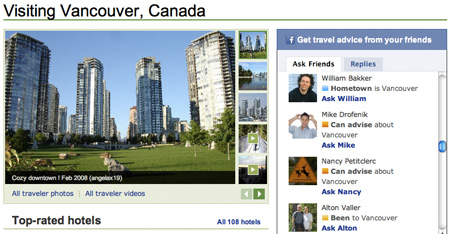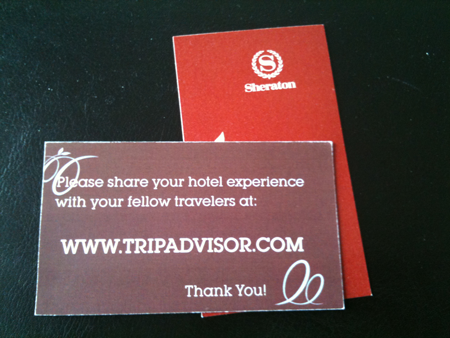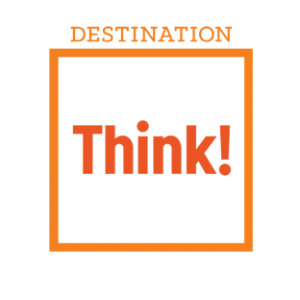The Archives
-
Experience Design, Marketing, social media, Travel & Tourism
Meh
I often hear from hotel operators that negative reviews on Tripadvisor usually aren’t from their typical customers. A 4-star hotel receives bad reviews from customers who got a deal on a discount website because of high parking fees and the expensive restaurant. A family oriented hotel receives bad reviews from business traveler who complain about the noise from the kids playing in the pool.
I use the chart below in some of my presentations:

There are a lot of people will love your product and a lot of people who probably won’t. The people who love of hate your product are the people who will talk about you in social media. The people in the middle shrug their shoulders and won’t mention you either way.
Two lessons from this chart:
- Stop marketing to people on the right side of this bell curve. They might deliver short-term cash flow but hurt your business in the long run.
- Moving the curve a little bit to the left will increase the number of positive conversations and grow your business through word-of-mouth.
-
Internet, Marketing, social media, Travel & Tourism
Tripadvisor offers a glimpse into the future
07.12.10 | Permalink | 4 Comments
Science fiction writer William Gibson once said “The future is already here – it’s just not evenly distributed.” You can see what some of the future will look like with Tripadvisor’s ‘Trip Friends’.
About 7 years ago we ran some focus groups in San Francisco to learn more about the trip planning process. I remember that involving real people was a very important part of the process. I concluded that people prefer to talk to people in this order:
- People they know and live in the destination they want to visit
- People they know and have been in the destination they want to visit
- People they don’t know and live in the destination they want to visit
- People they don’t know and have been in the destination they want to visit
Tripadvisor is serving up information from group #4 very well; with it’s reviews and message boards. With their ‘destination experts’ on their message boards they also started using group #3.
Now Tripadvisor has also figured out a way to include groups #1 and #2, the most credible sources of information to a trip planner.
A few years ago, Tripadvisor bought the Facebook app “Where I’ve been” for a reported $3M. At the time it was a gimmicky app where you could plot pins on a map for places you’ve visited anywhere in the world. The app was successful because it taps into one key motivator for travel; making my friends and family jealous of the places I’ve been. Tripadvisor also bought it’s 2.3M users. Tripadvisor rebranded it “Cities I’ve visited” and incorporated it into it’s website and has done a decent job of improving it.
Users can add cities they’ve visited, where they want to go, their favourite cities and what cities they can give advise for. The app has an active userbase of 4.8M when I checked today. And I’m sure there are many more users on the Tripadvisor website. As a result, Tripadvisor has an incredible amount of intelligence about their member’s travel history and desires.
Tripadvisor has mashed up with own intelligence with Facebook’s through Facebook Connect and the Open Graph. When you log into Tripadvisor with Facebook connect, and you visit a city page, you’ll now see a list of your friends who:
- live in a particular city
- have a particular city listed as a favourite
- have been to a particular city
- are going to a particular city
Tripadvisor allows you to use Facebooks social networking tools to send a message to one or more of your friends to ask for advise about your upcoming trip based on this information.
Even though it’s a small step, it’s very useful and also a significant indicator of future possibilities for combining your own consumer data (like Tripadvisors data about where people have been) with Facebook’s social graph and social networking power.
“The future is already here – it’s just not evenly distributed.”
Note: I intended to write this post much sooner. But the future is also unevenly distributed by individual and my attempts to login to Tripadvisor with Facebook connect has resulted in error messages for a month now. I’ve reported the error at least a dozen times but I had to resort to using my wife’s Facebook credentials to have a look at this feature.
-
Internet, Management, Marketing, social media, Travel & Tourism
Sheraton Tripadvisor Cards

A few weeks ago I spoke about our online marketing activities during the 2010 Olympics in Seattle. I stayed in the Sheraton; great hotel. They left a really nice note in my room, including this card to encourage me to share my experience on Tripadvisor. Simple and effective.
-
Uncategorized
Marketing your small tourism business in the 21th century: #3 Monitor and Respect Tripadvisor
03.29.08 | Permalink | 2 CommentsIf you run a tourism business, and especially if you run an accommodation business, you need to know what people say about you on Tripadvisor. A lot of operators do this already, but I’m amazed at how many don’t. You’ll probably find that most reviews are very positive. (Tracking Tourism blog did some research).
But some ratings might not be positive. Some might even be unfair. Tripadvisor gives you the ability to respond to any review, positive or negative. So you have a change to provide your side of the story and turn a bad review in an opportunity to show you care about your customer.
I’ve seen some very bad management responses. They often read like retaliations. I’m sure it made the operator feel better for a minute, but I don’t think they understand how it will only make things worse. This is one example I found:Either you have never been a guest and grudging on behalf of someone else. Whatever are your reasons, let me tell you something, no one gets rude for no reason. If you push anybody to extreme, then be prepared to be pushed back. Hopefully, we live in a world of sensible people, I didn’t say saints. If your expectation are right, you will always get what you paid for. As someone said, “there are no FREE bananas”Who knows, maybe the guest was completely unreasonable. But consumers don’t know that, and this kind of response won’t make them excited about a possible visit.
Good responses I’ve seen show empathy with the customer and demonstrate actions to avoid these situations in the future where necessary. The best responses I’ve seen include invitations to make up for it (when something obviously bad happened) or new policies based on the feedback. Here’s a good example:Based on the review we have implemented the following changes:
1. Put larger desks in our corporate friendly rooms.
2. Increased the higher voltage bulbs in these rooms.
3. Had our wireless provider fix the errors.
I will like to thank you for your feedback and will like to offer a free night stay at our hotel to change your experience.
Sincerely,
GMI’m not suggesting to hand out free stays to anybody who complains on Tripadvisor. The bottom line is that you can make a bad review into an opportunity to show future readers you care about you customers and are willing to address feedback. And if you follow rule #1, Tripadvisor will be one of your best marketing vehicles. Maybe there is such a thing as “free bananas” after all.

